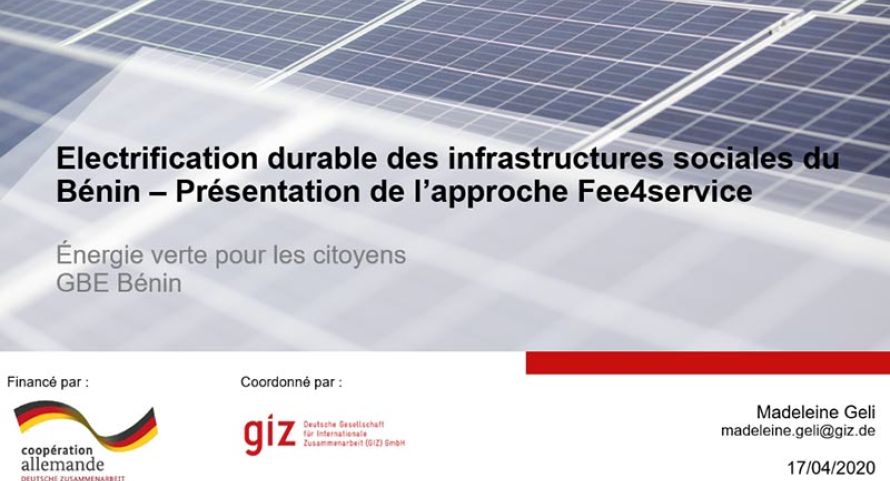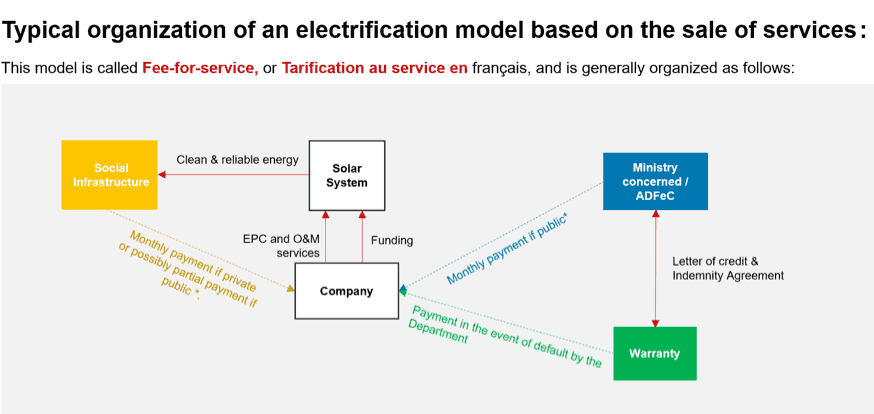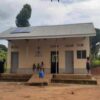Sustainable electrification of social institutions in Benin

One in four health centers in Africa does not have access to electricity. This applies to every social institution; particularly in Benin. The GBE Benin project aims to develop the market for decentralized renewable energy in rural areas by promoting energy-as-a-service business models. To increase awareness, GBE Benin launched a YouTube video (French language) presenting the new Fee-for-Service approach to be promoted together with private and public partners.
According to data gathered by the World Bank (2020, Increasing Human Capital by Electrifying Health Centers and Schools through Off-Grid Solar Solutions), approximately 1.75 million people, or 1 in 4, public health centers and schools lack reliable electricity supply. About 70% of medical equipment in developing countries fail due to dirty power, which are abnormalities in power quality that can cause electrical appliances to short-circuit among other failures. These key facts apply to all social institutions, particularly in Benin.

In the conventional model of ownership for electrification commodities, a government agency (or a donor) covers the up-front investment needed to purchase and install off-grid systems. Ownership of the equipment is then handed over to the beneficiary. Operation and maintenance (O&M) are addressed separately (if at all), often in the form of training of the local community or leaving the responsibility with an already-overburdened rural electrification agency.
As proven countless times, this approach often fails: once the warranty period expires and the system stops functioning, social institutions are not able to provide repair and therefore stop using the system, squandering assets and investment. A survey of 50 health centres conducted by GBE Benin in 2019 highlighted that while 86% of health centres surveyed had a solar system, almost 40% of these systems were not working (even though the majority of systems were less than three years old and therefore theoretically still under warranty).
There is an urgent need for a paradigm shift to evolve from an equipment ownership model for off-grid electrification to long-term performance-based models in which energy is sold as a service. The GBE Benin project aims to develop the market for decentralised renewable energy in rural areas by promoting such energy-as-a-service business models. To increase awareness about the business model, GBE Benin published a video on YouTube (see below) to present the new approach called Fee-for-Service promoted together with private and public partners and organized Question & Answer sessions at the beginning of June with various stakeholders.
In the Fee-for-Service approach, the social institution does not become the owner of the solar system, but only benefits from and pays for the energy services that it consumes on a monthly basis (similar to being connected to a utility, mini-grid or the national grid). The private company is responsible for financing, installing and maintaining the solar system. Therefore, the model builds on the mutual relationship between supply (solar company as utility) and demand (social infrastructure as customer). If the solar company does not supply quality electricity, it does not get paid ; and if the social institution does not pay, it does not get electricity. Additionally, the model builds on the latest technology in terms of remote-controlled solar systems with optimised maintenance, as well as prepaid payments to unlock the system. In the case of public social institutions and depending on the national capacities, energy payments can be done directly by the social institution, by the local authority or by the national government (through each ministry concerned for example).

In addition, GBE Benin launched a Call for Expressions of Interest at the end of January 2020 and selected, based on their technical and financial capabilities, 10 companies (3 local and 7 international) to operate under such a model in Benin. This working group will help GBE Benin support the improvement of the regulatory framework and to design a Results-Based Financing mechanism to cover the viability gap for the electrification of social institutions using a Fee-for-Service model.





